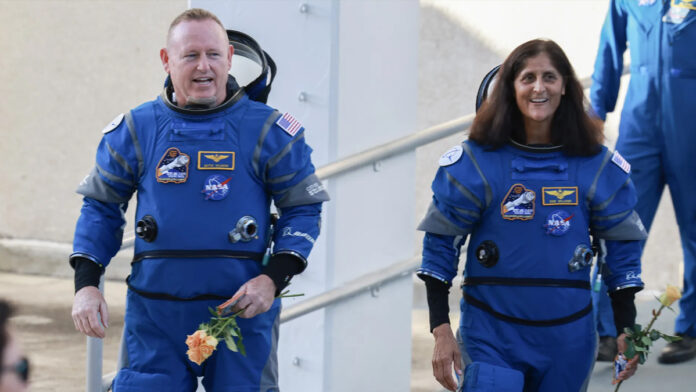NASA astronauts Butch Wilmore and Sunita Williams safely returned to Earth after spending nine months aboard the International Space Station (ISS), a significant extension from their originally planned one-week mission. Their prolonged stay resulted from technical issues with Boeing’s Starliner craft, delaying their return. The ISS, located 254 miles (409 km) above Earth, has been a hub for international space research for nearly 25 years, jointly managed by the US and Russia. Both astronauts, experienced Navy test pilots turned NASA crew members, had to adapt to the unique challenges of prolonged spaceflight.
Living in microgravity for months affects the human body in several ways, including muscle and bone loss, fluid shifts leading to kidney stones, vision impairments, and balance issues upon returning to gravity. Despite these challenges, the astronauts continued their duties effectively. Williams even took on the role of ISS commander three months into their mission, leading station operations until earlier this month. They maintained their fitness through rigorous daily exercises, using resistance bands, a treadmill, and a stationary bicycle to mitigate the effects of weightlessness.
Their diet was another crucial aspect of their survival. Initially, they had access to fresh fruits and vegetables, but these were depleted within three months. Thereafter, they relied on NASA’s stockpile of packaged and rehydrated food, which included breakfast cereal with powdered milk, pizza, roast chicken, shrimp cocktails, and tuna. All meat and eggs were pre-cooked on Earth and only required reheating. Dehydrated foods like soups, stews, and casseroles were prepared using water from the ISS’s 530-gallon fresh water tank. The ISS also features an advanced filtration system that recycles astronauts’ urine and sweat into drinkable water, ensuring a continuous supply of hydration. NASA medics closely monitored their calorie intake, and the station had enough food stocked—approximately 3.8 pounds per astronaut per day—to sustain them, even in the event of unexpected mission extensions.
Despite their extended stay, NASA assured that any weight loss observed in the astronauts was not due to food shortages but rather the natural effects of long-duration space travel. The astronauts remained in contact with their families via internet calls and engaged in scientific experiments and station maintenance throughout their mission. After nearly nine months, they finally departed the ISS in a SpaceX capsule, successfully splashing down off the Florida coast. They are now undergoing extensive medical evaluations and rehabilitation to help their bodies readjust to Earth’s gravity.




